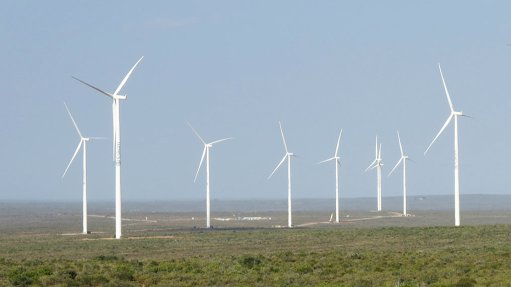Root cause of food inflation
Days after I had submitted the piece titled ‘Chickenomics’, which was published on August 19, I had a sinking feeling that it was not quite complete. It was not incomplete as far as chicken meat was concerned, but was incomplete with respect to food inflation.
When author and satirist Pieter-Dirk Uys was asked where he derives the ideas for the material he produces, he answered: “It is written for me, by the powers that be.” Sometimes I feel exactly the same as Uys when it comes to the stuff published in this column– it’s written for me, as it were.
To recap, on August 1, Trade, Industry and Competition Minister Ebrahim Patel decided to delay by 12 months the imposition of antidumping duties on frozen chicken originating in or imported from Brazil, Denmark, Ireland, Poland and Spain. Curiously, he decided to retain antidumping duties on Germany, the Netherlands, the UK and the US. The reason for the delay was that this was being done “in an effort to reduce food inflation”. So, don’t imports from the nonexcluded countries contribute to food inflation, or could it be that all chickens are equal, but some are more equal than others?
Returning to the farm, or rather the sugar plantation – the South African Revenue Service announced in the Government Gazette of August 19 that there would be an immediate reduction in the rates of customs duty on beet sugar, cane sugar, other cane sugar, and sugar containing added flavouring or colouring matter, in terms of the variable tariff formula. The rate of customs duty is 195.28c/kg, as no trade agreement preference applies to sugars.
Why didn’t the Minister reduce the rate of customs duty on sugar to zero, deciding instead to retain it at the current level for 12 months? Sugar, by the way, is a primary product used in the manufacture of many edible products.
So, will addressing a single symptom really make any difference to food inflation? The South African government should pay heed to David Franklin’s sage advice: “When things tend to go wrong in organisations, leadership is more likely to treat the symptoms instead of addressing the root cause. Until you address the root cause, symptoms will continue to surface.”
What is the root cause of South Africa’s food inflation? According to a US Department of Agriculture (USDA) Foreign Agricultural Service (FAS) report published on August 5, “food price inflation was exacerbated in South Africa by ongoing load-shedding, or prolonged power outages, which have increased costs along the supply chain”. This occurred within the context of “fuel and food prices [soaring] globally due to the Russia-Ukraine conflict that disrupted commodity markets”. This is in line with a Food and Agricultural Organisation (FAO) economist’s observation that “a much bigger push for food price inflation comes from outside food production, particularly the energy, fertiliser and feed sectors”. The FAO observes: “As a result, South Africa’s food price inflation accelerated by 9.0%, the highest level since February 2017. To help curb the escalating inflation rate, the South African Reserve Bank increased the interest rate by 0.75%, raising borrowing costs to their highest level since March 2020.”
This doesn’t bode well for South Africans, whose average debt burden was R67 252.86 in 2020.
However, one cannot speak of food inflation without also considering food security. For a sobering reminder, read a Statistics South Africa report published on March 31. Titled ‘Measuring Food Security in South Africa: Applying the Food Insecurity Experience Scale’, it states: “Almost 23.6% of South Africans in 2020 were affected by moderate to severe food insecurity, while almost 14.9% experienced severe food insecurity.”
Simply reducing the antidumping duties on a single product is inadequate. Government should be addressing the core aspects of food inflation cited by the USDA FAS.
Article Enquiry
Email Article
Save Article
Feedback
To advertise email advertising@creamermedia.co.za or click here
Announcements
What's On
Subscribe to improve your user experience...
Option 1 (equivalent of R125 a month):
Receive a weekly copy of Creamer Media's Engineering News & Mining Weekly magazine
(print copy for those in South Africa and e-magazine for those outside of South Africa)
Receive daily email newsletters
Access to full search results
Access archive of magazine back copies
Access to Projects in Progress
Access to ONE Research Report of your choice in PDF format
Option 2 (equivalent of R375 a month):
All benefits from Option 1
PLUS
Access to Creamer Media's Research Channel Africa for ALL Research Reports, in PDF format, on various industrial and mining sectors
including Electricity; Water; Energy Transition; Hydrogen; Roads, Rail and Ports; Coal; Gold; Platinum; Battery Metals; etc.
Already a subscriber?
Forgotten your password?
Receive weekly copy of Creamer Media's Engineering News & Mining Weekly magazine (print copy for those in South Africa and e-magazine for those outside of South Africa)
➕
Recieve daily email newsletters
➕
Access to full search results
➕
Access archive of magazine back copies
➕
Access to Projects in Progress
➕
Access to ONE Research Report of your choice in PDF format
RESEARCH CHANNEL AFRICA
R4500 (equivalent of R375 a month)
SUBSCRIBEAll benefits from Option 1
➕
Access to Creamer Media's Research Channel Africa for ALL Research Reports on various industrial and mining sectors, in PDF format, including on:
Electricity
➕
Water
➕
Energy Transition
➕
Hydrogen
➕
Roads, Rail and Ports
➕
Coal
➕
Gold
➕
Platinum
➕
Battery Metals
➕
etc.
Receive all benefits from Option 1 or Option 2 delivered to numerous people at your company
➕
Multiple User names and Passwords for simultaneous log-ins
➕
Intranet integration access to all in your organisation

















